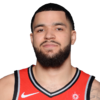The 2020 crop of NBA free agents isn’t the most exciting we’ve ever seen, but that doesn’t mean the offseason activity has to be any less wild. Free agency officially kicked off on Friday, and there have already been some unpredictable twists and turns.
While the biggest names on the board — Anthony Davis and Brandon Ingram — have yet to announce their intentions, plenty of intriguing and head-scratching decisions have been made. Here’s a look at some of the winners and losers of NBA free agency so far.
The latest Dwightmare aside, the Lakers came away as one of the biggest winners of the night. They made a huge splash by agreeing to a two-year, $19 million deal with reigning Sixth Man of the Year Montrezl Harrell, who reportedly turned down more lucrative offers to join the champions.
Before that, the Lakers made a shrewd move by agreeing to sign veteran guard Wesley Matthews to a one-year, $3.6 million deal. Matthews will replace Danny Green, who the Lakers sent to Oklahoma City in the Dennis Schroder trade. It looks like a great move for the Lakers, since Matthews had nearly identical averages to Green last season and will make $12 million less this year.
The Lakers were also able to bring back Kentavious Caldwell-Pope, arguably the team’s third best playoff performer during the title run, on a three-year, $40 million deal. Assuming Anthony Davis re-signs, as everyone expects, the Lakers appear to be favorites to repeat heading into the 2020-21 season.
Not all centers have been winners in this free agency period. Shortly after free agency opened on Friday, Dwight Howard triumphantly announced that he would be returning to the world champion Lakers, along with the lyrical phrase, “Purple and gold never gets old.” But before Magic Johnson could even tweet about it, Howard quickly deleted his tweet, followed by The Athletic’s Shams Charania reporting that Howard “continues to consider all of his options.” As you can imagine, NBA Twitter had a field day with Dwight’s indecision.
About an hour later, it was reported that Howard had agreed to a deal with the Philadelphia 76ers for $2.6 million, which is less than the minimum the Lakers could have offered him at $3.1 million. It turns out, according to a report from Yahoo Sports, that Howard thought he had an agreement in place with the Lakers, which prompted the tweet, only for the team to quickly inform Howard that no formal offer was ever made. You can’t make this stuff up, people.
Howard has been one of the most entertaining and polarizing players in the NBA throughout his career, so we should have known his free agency would contain a flair for the dramatic.
Winner: Gordon Hayward
Who among us didn’t spit out our half-chewed lemon pepper wings when Gordon Hayward declined his $34 million option for next season? Well, the man clearly knew what he was doing. Hayward, who has averaged 14 points, 5.4 rebounds and 3.7 assists on 36 percent 3-point shooting the past two seasons with the Celtics after suffering a horrific leg injury in 2017, secured a four-year, $120 million, fully guaranteed contract with the Charlotte Hornets, who apparently outbid the Indiana Pacers — reportedly Hayward’s preferred destination. After being relegated to the fourth option at times with the Celtics, Hayward will presumably become a primary scorer and playmaker in the Hornets offense, similar to his role with the Utah Jazz.
Loser: Charlotte Hornets
The Hornets looked ready to bottom out and rebuild as they turned over the franchise keys to LaMelo Ball, Devonte’ Graham and their other young talent. Instead, they went and signed Hayward, who may not even be a No. 1 option at this point in his career, to what our Sam Quinn called one of the worst free-agent contacts in recent memory. Yeesh. As Quinn points out, Hayward’s contract will actually cost the Hornets more than the original terms of the 2017 deal with the Celtics, because Charlotte has to waive and stretch Nicolas Batum to free up cap room. Hopefully, Hayward performs well and all is good in Charlotte, but these are the exact type of contracts that hamstring franchises for multiple years if they go south.
Winner: Fred VanVleet
We’re not going to list every single player who agreed to a big deal as a winner, but we have to give a huge shout out to Fred VanVleet, who agreed to a four-year, $85 million deal to return to the Toronto Raptors. It is the largest NBA contract ever for an undrafted player, and after the deal was announced VanVleet replied to his own tweet from 2016 that read, “Bet on yourself,” with dollar sign emojis.
It’s hard not to root for this guy.
Winner: Centers
Reports of the death of the NBA center are greatly exaggerated. At least financially. Two of the biggest deals agreed upon after free agency opened on Friday went to Meyers Leonard (two years, $20 million from the Miami Heat) and Mason Plumlee (three years, $25 million from the Detroit Pistons, who we’ll talk about later). Later, San Antonio Spurs center Jakob Poeltl agreed to a three-year, $27 million deal, outdoing both of them. While Poeltl’s deal is not unreasonable, Leonard started for the Heat during the regular season but fell completely out of the rotation during the Finals run, while Plumlee averaged 17.3 minutes per game (10.8 in the playoffs) as Nikola Jokic’s backup with the Nuggets, so it was a little surprising to see that much cash thrown their way.
In addition to those two, centers Robin Lopez, Jahlil Okafor, Drew Eubanks and Derrick Favors also agreed to deals on Friday. They’ve set the salary bar pretty high, with centers like Serge Ibaka, Marc Gasol and Tristan Thompson still without deals. The board men get paid, indeed.
Loser: Los Angeles Clippers
Coming off an embarrassing loss to the Nuggets in the Western Conference finals, the Clippers lost a big piece from last year’s team when Harrell agreed to sign with the Lakers. Now their options are limited when it comes to centers to join Ivica Zubac on the roster. After Harrell agreed to sign with the Lakers, the Clippers decided to give Marcus Morris a four-year, $64 million contract. Morris is a nice player, but he had major leverage knowing that the Clippers didn’t have the cap flexibility to go out and sign another wing of his caliber. Steve Ballmer may not mind cutting the check, but with Harrell switching teams the Lakers took an edge in the battle for L.A. … for the time being.
Winner: Portland Trail Blazers
The Blazers went through almost the entire 2019-20 season with extremely limited wing options, and that was clearly a position of priority this offseason. After trading for Robert Covington from the Houston Rockets, the Blazers added athletic wing Derrick Jones Jr. in free agency, while re-signing Carmelo Anthony and Rodney Hood. That is a deep, talented crop of wings to put around Damian Lillard and CJ McCollum, with Jusuf Nurkic and Zach Collins in the middle. After a down year, Portland appears to be right back in the mix in the Western Conference.
Fox became the first player to receive a max contract in the 2020 offseason, agreeing to a five-year, $163 million extension with the Sacramento Kings. While fellow 2017 draftees Jayson Tatum and Donovan Mitchell are also expected to sign max extensions, there was at least some debate surrounding Fox, so good for him on cashing out. He’ll now look to lead the Kings to the playoffs for the first time since 1947 2006.
Loser: Detroit Pistons
Look, maybe the Pistons are playing chess and we’re all stuck here trying to maintain the sanctity of our back row while playing checkers, but what they did on Friday was … odd. They agreed to deals with both Mason Plumlee and Jahlil Okafor, adding to their existing center crop of Dewayne Dedmon, Tony Bradley and recently drafted Isaiah Stewart. Yes, that’s five centers on one team (they’re reportedly going to waive and stretch Dedmon, but still). Then they agreed with Jerami Grant on a three-year, $60 million deal with the promise of being more of an offensive focal point, while they could have instead retained Christian Wood, who agreed to sign with the Rockets for three years, $41 million. They also struck a deal with Josh Jackson, which isn’t a terrible move for a rebuilding team, but still adds to the weirdness.
Overall it was a strange beginning to general manager Troy Weaver’s first offseason with the team. We shall have to wait and see if there is a method to Detroit’s madness.
Re-signing Clarkson seemed to be a priority for the Jazz, but it was still a bit surprising to see him agree to a four-year, $52 million contract. He’s one of the best bench bucket-getters in the league, but perhaps the best bench bucket-getter in the league, Lou Williams, only makes $8 million per year. Clarkson’s now set to make $13 million annually.
Loser: Denver Nuggets
When Jerami Grant opted out of his $9 million option for next season, we knew he was going to get paid — we just thought it would be by the Nuggets. Coming off a breakout performance in the bubble, Grant instead chose to sign a three-year, $60 million deal with the Detroit Pistons. To add insult to injury, Grant reportedly had the same offer on the table from Denver, but was enticed by a bigger role in the Pistons offense. Grant was growing into a third star next to Nikola Jokic and Jamal Murray, so this is a rough loss for the Nuggets, despite securing JaMychal Green on a two-year, $15 million deal to help fill the frontcourt hole.
On the plus side, Denver fans get to watch Argentinian human highlight film Facundo Campazzo for the next two seasons.
Winner: 3-point specialists
It’s a great time to be a 3-point shooter in the NBA. Sharpshooters Danilo Gallinari (three years, $61.5M), Joe Harris (four years, $75M) and Davis Bertans (five years, $80M) agreed to contracts totaling over $216 million on Friday, with an annual average of $18 million. Gallinari actually made history with his contract — it’s the most lucrative multi-year deal for a player over 30 years old without an All-Star appearance, according to ESPN’s Adrian Wojnarowski.










